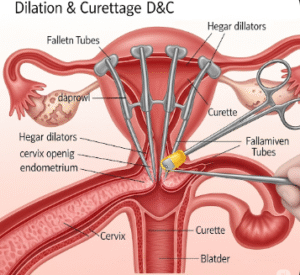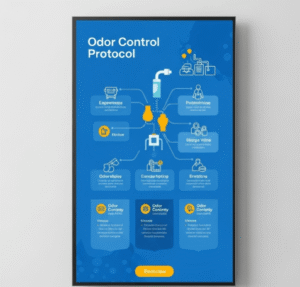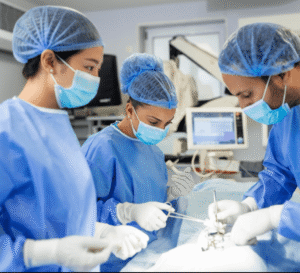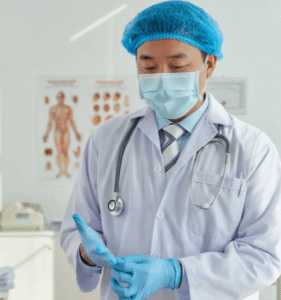Overview
Pharmacogenomic testing is a genetic test that helps predict how an individual will respond to certain medications. By analyzing genes involved in drug metabolism, healthcare providers can tailor prescriptions to maximize efficacy and minimize side effects.
South Korea offers advanced genomic testing facilities, state-of-the-art laboratories, and expert clinical pharmacologists, making it a leading country for personalized medicine and pharmacogenomics.
What is Pharmacogenomic Testing?
Pharmacogenomic testing involves analyzing specific genes that influence how drugs are absorbed, metabolized, and eliminated. Key points include:
✔ Identification of genetic variants affecting drug metabolism.
➔ Prediction of drug response and adverse reactions.
● Personalized dosing recommendations based on genetic profile.
★ Integration with clinical care to improve treatment safety and effectiveness.
This testing is increasingly applied in cardiology, oncology, psychiatry, and pain management, where drug response variability can significantly impact outcomes.
What are the Benefits?
Pharmacogenomic testing offers several advantages:
✔ Optimizes drug selection and dosing for each patient.
➔ Reduces risk of adverse drug reactions, including serious complications.
● Improves treatment efficacy by selecting medications more likely to work.
★ Supports personalized medicine and evidence-based care.
➤ Cost-effective long-term: Avoids trial-and-error prescribing and unnecessary hospitalizations.
Procedure Details
1) How should I prepare for Pharmacogenomic Testing?
Preparation is simple and non-invasive:
✔ Medical history review: Include current medications and past adverse reactions.
➔ Sample collection: Blood or saliva is typically used for DNA extraction.
● Consent and counseling: Understand implications of genetic testing.
★ Medication documentation: List all prescribed, over-the-counter, and herbal medications.
➤ Lifestyle and dietary considerations: Usually no specific restrictions, but follow lab instructions.
2) What happens during the procedure Pharmacogenomic Testing?
The testing process is straightforward:
✔ Sample collection: Blood draw or saliva sample obtained in a clinic or hospital.
➔ DNA extraction and analysis: Laboratory processes identify relevant genetic variants.
● Bioinformatics interpretation: Genetic data analyzed to determine drug metabolism and potential interactions.
★ Report generation: Results provided with clinical recommendations for drug selection and dosing.
➤ Integration with physician care: Doctors use results to adjust prescriptions safely and effectively.
3) What happens after Pharmacogenomic Testing?
Post-testing involves interpretation, follow-up, and application of results:
✔ Discussion with healthcare provider: Review results and implications for current medications.
➔ Treatment plan adjustment: Prescriptions modified based on genetic profile.
● Monitoring: Evaluate patient response and side effects after medication changes.
★ Documentation: Genetic report included in medical record for future reference.
➤ Follow-up testing: Rarely needed unless new medications are prescribed or gene expression changes.
Risks / Benefits
Possible Risks:
✔ Minor discomfort during blood draw or saliva collection
➔ Privacy concerns regarding genetic information
● Rare misinterpretation of results
★ Limited coverage for some medications or gene variants
➤ Psychological impact of knowing genetic predispositions
Major Benefits:
✔ Personalized medication selection and dosing
➔ Reduced adverse drug reactions
● Improved treatment outcomes
★ Supports precision medicine and evidence-based care
➤ Potentially lower healthcare costs due to fewer hospitalizations and ineffective treatments
Recovery and Outlook
✔ Immediate recovery: No physical recovery needed; sample collection is minimally invasive.
➔ Result timeframe: Typically available within days to a few weeks depending on the lab.
● Long-term impact: Guides safer and more effective prescribing for current and future medications.
★ Lifestyle integration: Patients can make informed medication choices and share results with other healthcare providers.
➤ Continuous monitoring: Adjust treatments as new medications are introduced.
When To Call the Doctor
Contact your doctor if you notice:
✔ Confusion about interpreting genetic results
➔ Unexpected adverse reactions after following recommendations
● Concerns about privacy or use of genetic information
★ Questions regarding medications not covered by testing
➤ Need for further counseling on gene-drug interactions
Best Korea Option / Process
South Korea provides expert pharmacogenomic testing with:
✔ Leading hospitals and labs: Samsung Medical Center, Asan Medical Center, Seoul National University Hospital.
➔ Advanced genetic analysis platforms: High-precision DNA sequencing and interpretation.
● Expert clinical pharmacologists: Integrate genetic results with patient care.
★ Comprehensive counseling and follow-up: Personalized medication plans and continuous monitoring.
➤ Medical tourism support: Translation, travel coordination, and continuity of care for international patients.
✅ Highlights:
✔ Pharmacogenomic testing personalizes drug therapy for optimal safety and effectiveness
➔ Reduces adverse drug reactions and improves outcomes
● Minimally invasive with rapid turnaround for results
★ Risks include privacy concerns, interpretation limitations, and minor sample collection discomfort
➤ Korean hospitals provide cutting-edge labs, expert pharmacologists, and comprehensive follow-up care













